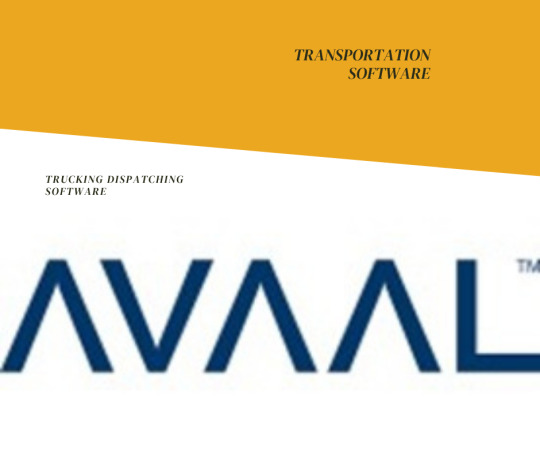#Invoicing and payment processing tools
Explore tagged Tumblr posts
Text
#Housecall Pro review#Home service business software#Business management software#Field service management#Scheduling software for service businesses#Invoicing and payment processing tools#Customer management software#Marketing tools for service pros#Home service industry solutions#Business software for plumbers#HVAC business management#Landscaping business software#Electrical service software#Service business automation#Small business technology solutions#Streamlining business operations#Growing a service business#Software for service professionals#Home service scheduling tools#Best software for service businesses
0 notes
Text
Elevate your business efficiency! Choosing the right billing software is key. Find an intuitive, secure, and scalable solution that streamlines invoicing and boosts productivity. #BillingSoftware #BusinessEfficiency
#Billing Software#Invoicing Tools#Business Efficiency#Billing Features#Payment Processing#Automation#Reporting#Integration
0 notes
Text
CREVH - GOLD

QuickBooks is a renowned accounting software that offers a seamless solution for small businesses to manage their financial tasks efficiently. With features designed to streamline accounting processes, QuickBooks simplifies tasks such as tracking receipts, income, bank transactions, and more. This software is available in both online and desktop versions, catering to the diverse needs of businesses of all sizes. QuickBooks Online, for instance, allows users to easily track mileage, expenses, payroll, send invoices, and receive payments online, making it a comprehensive tool for financial management. Moreover, QuickBooks Desktop provides accountants with exclusive features to save time and enhance productivity. Whether it's managing income and expenses, staying tax-ready, invoicing, paying bills, managing inventory, or running reports, QuickBooks offers a range of functionalities to support businesses in their accounting needs.
Utilizing qb accounting software purposes comes with a myriad of benefits that can significantly enhance business operations. Some key advantages of using QuickBooks include:
- Efficient tracking of income and expenses
- Simplified tax preparation and compliance
- Streamlined invoicing and payment processes
- Effective management of inventory
- Generation of insightful financial reports
- Integration with payroll and HR functions
These benefits not only save time and effort but also contribute to better financial decision-making and overall business growth. QuickBooks is designed to meet the diverse needs of businesses, offering tailored solutions for various industries and sizes.
When considering accounting qb software options, QuickBooks stands out as a versatile and comprehensive choice. To provide a holistic view, let's compare QuickBooks with two other popular accounting software options - Xero and FreshBooks. quick book accounting package and offers robust features for small businesses, including advanced accounting capabilities, invoicing, payment processing, and payroll management. Xero, on the other hand, is known for its user-friendly interface and strong collaboration features, making it a popular choice among startups and small businesses. FreshBooks excels in invoicing and time tracking functionalities, catering to freelancers and service-based businesses. By evaluating the features, pricing, and user experience of these accounting software options, businesses can make an informed decision based on their specific needs and preferences.
555 notes
·
View notes
Text
5 Best Restaurant Management Software Reviews for 2025
Are you looking for the best restaurant management software?

In this tech-driven era, utilizing feature-rich restaurant management software is crucial for small businesses to stay ahead of their competitors. To keep pace with the constant technical advancements and ever-evolving customer preferences, most restaurant owners rely on restaurant management tools that not only streamline their restaurant operations but also help improve sales.
Managing day-to-day restaurant operations can be challenging. However, for many years, restaurants have been struggling with manual logs, lots of spreadsheets, and ordinary point-of-sale systems to keep things in order. This results in missed orders, poor task management, and lots of stress.
If you, too, are dealing with the same issue, this article will be very helpful for you, as we have shared 5 of the best restaurant management software reviews here to help you pick the right one for your business and modernize your restaurant management system.
What is restaurant management software?

Restaurant management software or a restaurant POS system is designed to automate all restaurant operations, order & delivery tracking, generating invoices, storing customer details, offering discounts, food menu management, restaurant reviews, and more. In simple words, it creates the foundation of your restaurant business. A good restaurant POS system will drive your sales and give you a lot of opportunities to grow your restaurant business.
If you still do not use a restaurant management system, let us tell you why your business needs it.
Why do you need restaurant management software?

Best Restaurant Management Software automates major restaurant operations, offering you a stress-free business management experience and happy customers.
Other benefits of using restaurant management software include:
Order management: Starting from accepting orders to processing them and tracking delivery, the entire process is automated with a restaurant management system.
Table booking management: You can easily manage table reservations, table availability, seating arrangements, and more to optimize space and increase revenue.
Handling customer data: When customers place orders with your POS system, it automatically saves crucial information that you can utilize to offer personalized experiences to them.
Improves user experience: With online ordering, payment security, a loyalty program, and systematic task management, your customers feel satisfied.
Data-driven marketing decision: A POS system offers useful data and reports on your sales and evaluates your overall restaurant performance to help you make data-driven decisions.
Menu management: Add a striking menu and easily add, edit, or delete food items from it.
Cost optimization: Proper menu management, loyalty program, and simplified order management help optimize costs.
Reduced errors: Tech-driven order, delivery, and customer data management reduce the chances of error and provide you with an accurate picture of your restaurant’s performance.
These are the basic advantages of using a restaurant management system. When you choose the best for you, your business will experience more benefits.
Selecting the best restaurant management software: features to look for

Best restaurant management software features
When you search for the best restaurant management software for your restaurant, you will find an overwhelming number of options that are sure to confuse you. So, how to pick the best one? The answer lies in the features of a restaurant POS system.
Find out the must-have features for a restaurant management system:
Security
Your restaurant POS system regularly deals with confidential customer information like their payment details, contact information, etc, and ensuring their security should be a priority to build trust and credibility. Ensure that the restaurant software you choose has end-to-end encryption and a secure payment system.
Speed
One of the most important factors of the best restaurant management software is its speed. It must be able to work efficiently during rush hours when the order flow usually doubles. If the system slows down or crashes, then it could pose a serious challenge to your operational efficiency and business reputation. While scrutinizing event management software, do not forget to check its speed and its ability to handle pressure.
Scalability
Scalability is extremely important for a restaurant management solution to stay aligned with the changes that take place. Whether it is about managing restaurants from different locations or adding new features, your software must be able to deliver that without affecting the performance.
Mobile Accessibility
Make sure that the restaurant POS system you choose offers you the flexibility to manage your restaurant operation through your mobile phone. Opening a desktop for minor works can be a hassle. Tracking orders, deliveries, customer data, table registration, and more through phones is extremely beneficial and convenient.
Table booking management
Table reservation is a crucial part of a restaurant, and that is why, while filtering restaurant management software, look for a restaurant management system that offers a table booking system.
Order and delivery management
A restaurant POS system is incomplete without an online ordering and delivery management system. Search for a restaurant menu software that provides you with 100% admin control over the orders and delivery management.
Technical support
Technical support ensures that everything runs smoothly. Opt for a restaurant management system that offers technical support when required. This is important because if you face any technical issues, they can solve them promptly.
Reporting and analytics
Reports and analytics help you measure the performance of your restaurant. It throws light on sales, employee performance, and customer preferences to help you make major decisions for growth.
5 Best Restaurant Management Software Reviews
We have picked the 5 best restaurant management software after evaluating them on the basis of the above-mentioned points and reviewed each of them to help you understand them better and choose the most suitable one for your business.
1. FoodMato

FoodMato is one of the best restaurant management software programs that you can rely on for your small, medium, or established restaurant business. It is an all-in-one restaurant POS system that covers everything from online ordering and delivery to menu management, marketing, and an easy-to-use mobile app to manage the entire system at your fingertips.
Key features of FoodMato
Restaurant website creation and branding.
Seamless order management and delivery tracking.
Stress-free restaurant reservation system.
Creation of food menu and its management.
Freedom to handle multiple restaurant operations from a centralized platform.
Reports and analytics on restaurant sales, orders, and overall performance.
Google Maps integration to display restaurant locations.
Loyalty program for customer retention.
Restaurant marketing with social media community management.
Restaurant review system to increase credibility.
Sincere and timely support.
Third-party integrations.
Restaurant gallery to showcase your restaurant’s ambiance.
The best part about FoodMato is that it covers all essential restaurant management features, and it can be customized as per individual business requirements.
Pros of FoodMato
Offers a comprehensive solution
Affordable pricing.
Prompt response from the support team.
Offers full control to the admin.
A wideegtecccg3grvfcrv array of features.
Amazing reviews.
The FoodMato team works according to unique business needs.
No technical knowledge is required.
Cons of FoodMato
Not many reviews are available as it is a newly launched software.
2. OpenTable

The second in our list is the OpenTable software, which is known for its excellent restaurant reservation system. The POS system offers a vast array of services to restaurants, including table reservations, table management, restaurant booking, inventory management, and more.
Key features of OpenTable
Organize private dining events with enhanced visibility.
Restaurant management with a mobile app.
Restaurant reservation system with tags, booking, and waiting list facilities.
Offers guest data security.
The online waiting list is for guests to avoid congestion at the restaurant front door.
Reports and analytics.
A restaurant direct messaging system to allow customers to directly interact with restaurant representatives before stepping in.
Pros of OpenTable
Vast features.
Superior table booking system.
CRM integrations for better guest management.
Positive reviews.
Cons of OpenTable
Users often complain about data synchronization issues.
The system may slow down during peak hours.
It may feel overwhelming for users due to excessive features.
3. Toast

Toast is another restaurant POS system that we have picked for our readers. It is easy to use, and it can be a good choice for those who are not tech-savvy. It offers multiple useful features that cover major restaurant operations like online ordering, payroll management, and more.
Key features of Toast
Simplified online ordering.
Convenient to use.
Various tools for employee scheduling and payroll management.
Insightful reports and analytics.
Easy integrations with third-party online ordering platforms.
Customizable.
Pros of Toast
User-friendly.
Packed with multiple features.
Integration with third-party delivery platforms for smooth restaurant management.
Cons of Toast
The absence of offline functionality makes the system completely unusable.
Difficulty in customizing the system.
4. PetPooja

PetPooja is a well-known restaurant POS software developed to streamline restaurant operations. It offers a wide range of restaurant management features, including online ordering, task management, easy attendee tracking, and task and payroll management.
Key features of PetPooja
User-friendly interface.
Online ordering and billing system.
Task management tool to improve productivity
Digital invoice generation system.
Real-time restaurant reports on sales, online orders, inventory consumption, staff management, and more.
Pros of PetPooja
Fast and reliable.
Easy to use.
Multiple useful features.
Offers real-time updates on Inventory, sales, and customer preferences.
Cons of PetPooja
The process of integrating the software with other platforms is complicated.
5. Restroworks

Last but not least, Restroworks works as a complete restaurant management platform with powerful inventory management features. It is mostly suitable for medium-sized restaurants. It easily integrates with payment processing tools to offer a smooth transaction experience to restaurant owners and customers.
Key features of Restroworks:
Helps manage kitchen inventories to decrease food prices.
Offers real-time updates on food stock to reduce food wastage.
Provides a clear picture of the upcoming day’s food consumption based on historical data.
Helps create recipes with proper ingredients and monitor costs to determine the price of a food item.
Pros of Restroworks
Customizable.
Offers a comprehensive restaurant management solution.
Easy inventory tracking.
Automatic sync with accounting tools.
Cons of Restroworks
It can be a bit complicated for small businesses.
Customer support response time is slow
Inventory tracking requires manual efforts.
What is the best restaurant management software?
Selecting the best restaurant management software from the above-mentioned tools completely depends on your restaurant’s requirements. We recommend FoodMato because it offers an A-to-Z solution to your restaurant business with a strong IT support team.
Wrapping up
Let us take a quick look at the 5 best restaurant management software that we have reviewed for you: FoodMato, Openable, Toast, PetPooja, and Restroworks. We have picked them on the basis of their features, reviews, support, user-friendliness, and their ability to streamline restaurant operations.
#online ordering system#pos system#restaurant management#food delivery#onlineorderingsystemfor restaurant#Restaurant Management Software
2 notes
·
View notes
Text
Accounting Classic Features
Features
Online payment processing, payroll system, stockmanagement, tax filling & reporting. Track financial updates related to taxes, inventory levels, customer payments and more

Accounting software on Cloud at its Best Bank Reconciliation |Reports | Invoice Customization

Online payment processing, payroll system, stock management, tax filling & Reporting.
Track financial updates related to taxes, customer payments and more…
Best for invoicing, Feature-rich solutions Sending Invoices Online?
Make professional Invoices in seconds, Automate Payment Reminders

Accounting Classic has a Simple, user-fiendly interface design that offers end-to-end accounting tasks
Join Our Community
We build modern web tools to help you jump-start your daily business work.
3 notes
·
View notes
Text
What is the difference between CPQ & RLM?
Revenue Cycle Management Services

In today's fast-moving healthcare and enterprise environments, understanding the difference between CPQ and RLM is essential, especially when these tools impact operations like Revenue Cycle Management. Although both the CPQ and RLM help to optimize processes, they serve very different functions but are aligned toward the business segment.
CPQ – Configure, Price, Quote:
CPQ stands for Configure, Price, Quote. It's a sales tool that helps companies quickly and accurately generate quotes for products or services they are offering. CPQ is a valuable product in industries with complex pricing models or customizable offerings—such as medical equipment, software solutions, or enterprise services.
With CPQ, sales teams can:
Select product features and (configure) as per its requirements
Apply pricing rules and discounts (price) for better product briefing
Generate accurate proposals or quotes (quote) for better outcomes
By automating this process, CPQ reduces errors, speeds up the sales cycle and which eventually boost up the revenue as the ultimate goal, and ensures that pricing is consistent and aligned with company policies and as per its set standards and desired objectives.
RLM – Revenue Lifecycle Management:
On the other hand, revenue Lifecycle Management (RLM) focuses and starves to look at managing and optimizing things at every stage of the revenue process. In healthcare, this is closely tied to Revenue Cycle Management—as a system that oversees the patient billing, insurance claims, payments, and collections.
RLM looks at the broader picture, including:
Contract management
Billing and invoicing
Revenue recognition or recollection
Renewals and upsells of listings
RLM ensures and seeks that the revenue is tracked, reported, and optimized as per the given concern from when a contract begins until the revenue is fully realized or settled out. In healthcare, it's critical for improving financial health, assuring compliance, and reducing revenue leakage as a protective measure.
Key Differences -
CPQ is sales-focused, helping generate quotes and close deals faster as a better option for the users to roll out.
RLM is revenue-focused, ensuring smooth handling and assessment of all financial processes post-sale and after it gets done.
CPQ comes into play at the beginning of the customer journey, while RLM continues throughout the customer lifecycle as they both work as a part of the set system.
Many advanced providers and professionals experts of Revenue Cycle Management, like Suma Soft, IBM, Cyntexa, and Cignex, offer tailored RLM solutions and Revenue Cycle Management services that integrate with CPQ systems. This creates a seamless flow from quoting to revenue realization, making operations more efficient and profitable.
#it services#technology#saas#software#saas technology#saas development company#revenue cycle management#revenuegrowth
2 notes
·
View notes
Text
CRM CLASSIC – The Smart, Free Business Solution!
Running a small or medium-sized business is challenging—you need to manage sales, track leads, oversee finances, and keep your team aligned. CRM CLASSIC simplifies these processes, offering an all-in-one 100% free CRM/ERP platform trusted by 7,000+ businesses in 30 countries.
Why CRM CLASSIC?
✅ 100% Free – No hidden costs, no subscriptions—just powerful business tools. ✅ Complete Business Management – Sales, invoicing, customer relations, accounting, HR, and project tracking—all in one place. ✅ Customizable & Easy to Use – Tailor workflows to fit your business needs with minimal setup.
Key Features That Help You Grow
✔ Sales & Leads – Automate follow-ups and close deals faster. ✔ Invoicing & Payments – Simplify financial operations. ✔ Customer & Referral Management – Strengthen relationships and expand your network. ✔ HR & Team Coordination – Streamline communication and productivity. ✔ Project & Contract Management – Plan, track, and execute efficiently.
With built-in automation, smart workflow tracking, and seamless communication tools, CRM CLASSIC ensures efficiency, helping businesses scale faster and close more deals.
📢 Sign up today—it’s 100% FREE!

2 notes
·
View notes
Text
Chicago Real Estate Market: Trends, Opportunities, and What to Expect in 2025
Managing a business involves more than just delivering excellent products and services. Financial management plays a critical role in the success of any business. For many business owners in North Carolina, bookkeeping can become an overwhelming task that diverts attention from core operations. However, outsourcing bookkeeping services can streamline financial processes, save valuable time, and lead to significant cost savings.
Here's a closer look at how professional bookkeeping services can optimize financial management.
Time Savings: Focus on What Matters
Every business owner understands the importance of time, and bookkeeping tasks can quickly take up valuable hours that could be better spent on growing the business. Managing financial records, categorizing transactions, and reconciling accounts can be complicated and tedious. Outsourcing these tasks to experienced bookkeepers frees up time to focus on strategic goals, customer relations, and other business operations.
By trusting experts with financial duties, owners ensure that these tasks are handled efficiently and accurately. Bookkeepers use specialized tools to organize and maintain financial records, making the process faster and more reliable. As a result, businesses avoid spending time correcting mistakes and can rest assured that financial records are up to date.
Financial Clarity: Informed Decision-Making
Clear, accurate financial data is essential for making informed decisions. Without up-to-date reports, it can be challenging to understand the true state of a business's finances. Professional bookkeeping services provide valuable insights into cash flow, income, and expenses. Business owners gain a clear picture of financial health, which is vital for planning and budgeting.
Regular financial reports, including profit and loss statements, balance sheets, and cash flow summaries, help identify trends and highlight areas for improvement. With this knowledge, businesses can adjust strategies, identify opportunities for growth, and make smarter decisions that lead to success. Understanding the numbers simplifies the decision-making process and helps ensure long-term sustainability.
Reducing Costs: Avoiding Errors and Penalties
Handling bookkeeping independently often leads to mistakes—whether it's misclassifying an expense or missing a tax deduction. These errors can result in costly penalties, missed savings, or poor financial decisions. By working with professional bookkeepers in Chicago for real estate, businesses can reduce the risk of errors that could lead to economic setbacks.
Experienced bookkeepers ensure that taxes are filed correctly, transactions are properly recorded, and all necessary deductions are applied. This not only helps avoid penalties but also uncovers potential savings by identifying overlooked deductions or financial inefficiencies. Outsourcing bookkeeping services, therefore, saves money by preventing costly mistakes.
Streamlining Operations: Efficient Financial Management
Bookkeeping involves more than just tracking income and expenses. It also includes managing accounts payable, accounts receivable, payroll, and tax filings. Keeping up with these responsibilities can become overwhelming, especially as a business grows. Professional bookkeeping services automate many of these processes, ensuring they are completed efficiently and on time.
Timely payment of invoices and the smooth processing of payroll help businesses maintain strong relationships with vendors and employees. At the same time, timely billing and collections keep cash flow consistent. By handling these essential tasks, bookkeeping services allow business owners to focus on other aspects of their operations, while the financial side of the business remains in capable hands.
Scalability: Adapting to Business Growth
As businesses grow, so do their financial complexities. Whether it's increasing revenue, adding new employees, or expanding to new markets, the need for more detailed financial management arises. Professional bookkeeping services can scale with a business, providing tailored solutions as needs evolve.
Outsourcing bookkeeping allows businesses to avoid the cost and hassle of hiring additional in-house staff or purchasing expensive software. Bookkeepers can adjust their services to accommodate changing demands, whether it's managing more transactions or overseeing more complex accounting tasks. This scalability ensures that businesses are equipped to handle growth without compromising on financial accuracy.
Data Protection: Safeguarding Financial Information
When it comes to financial data, security is critical. Storing sensitive business information—such as revenue details, tax filings, and payroll records—requires a high level of protection. Professional bookkeeping services use secure systems to ensure that financial records are safely stored and only accessible to authorized personnel.
By employing encryption and secure cloud storage, bookkeepers safeguard against data breaches and fraud. Additionally, regular reconciliations and audits help detect any discrepancies or signs of fraudulent activity, providing an extra layer of protection for the business's financial assets.
Conclusion: Why Bookkeeping Services Are an Investment
Outsourcing bookkeeping may seem like an added expense, but it's an investment that yields significant returns. By entrusting financial management to experts, business owners save valuable time, reduce the risk of costly errors, and gain valuable insights into their financial health. From improving cash flow management to identifying areas for cost savings, professional bookkeeping services help businesses optimize operations and increase profitability.
For businesses in North Carolina, professional bookkeeping is not just a convenience—it's a strategic asset that ensures financial processes are efficient, accurate, and secure. By freeing up time and minimizing costs, bookkeeping services allow businesses to focus on what matters most: achieving long-term success and growth.
To know more about real estate services, visit the website now.
2 notes
·
View notes
Text
What Are the Benefits of Adopting Latest Fintech Technologies?

The financial industry is witnessing a rapid transformation driven by the adoption of the latest fintech technologies. These technologies are revolutionizing how financial services are delivered, enhancing efficiency, improving security, and fostering innovation across banks, insurance companies, investment firms, and payment platforms. By integrating advanced fintech software into their operations, businesses are unlocking numerous benefits that enable them to stay competitive in an increasingly digital world. In this article, we will explore the key advantages of adopting the latest fintech technologies and how they are reshaping the financial landscape.
1. Enhanced Efficiency and Automation
One of the primary benefits of adopting the latest fintech technologies is the significant boost in efficiency. Traditional financial systems often rely on manual processes, which can be time-consuming, prone to errors, and costly. With the integration of fintech software solutions, businesses can automate a wide range of processes, from payment processing to data analysis.
For example, AI-powered algorithms can automate tasks like credit scoring, fraud detection, and risk assessment, enabling financial institutions to make faster and more accurate decisions. Additionally, blockchain technology enables automated, transparent transactions, reducing the need for intermediaries and speeding up processes like cross-border payments. The efficiency gained through automation allows businesses to handle a larger volume of transactions and deliver services more swiftly, benefiting both the institutions and their customers.
2. Improved Customer Experience
The latest fintech technologies also play a crucial role in enhancing customer experiences. Consumers today demand convenience, speed, and personalized services. Fintech software solutions enable businesses to meet these demands by offering innovative and user-friendly platforms for managing finances.
Digital wallets, mobile banking apps, and AI-powered chatbots are just a few examples of how fintech technologies are transforming customer interactions. Mobile payment systems like Apple Pay and Google Pay allow users to make secure transactions with just a tap of their phone, while robo-advisors provide tailored financial advice based on individual needs. AI-driven chatbots can respond to customer inquiries instantly, providing 24/7 support and delivering personalized responses. These innovations make financial services more accessible, faster, and tailored to the unique needs of each customer.
Additionally, by leveraging the latest fintech technologies, businesses can offer cross-channel experiences, where customers can seamlessly transition between online platforms, mobile apps, and physical locations without interruption. This level of convenience significantly improves customer satisfaction and loyalty.
3. Cost Savings and Reduced Operational Expenses
Adopting fintech technologies can result in significant cost savings for businesses. Traditional banking systems often involve high overhead costs related to maintaining physical branches, processing manual transactions, and managing large teams. By embracing fintech software, financial institutions can streamline their operations, reducing the need for human intervention in routine tasks.
For example, cloud computing solutions allow businesses to store and process large amounts of data without the need for expensive in-house infrastructure. This can lead to significant savings in terms of hardware and maintenance costs. Additionally, automated systems for customer service, fraud detection, and compliance reduce the reliance on human resources, leading to further cost reductions.
For small businesses and startups, fintech solutions offer an affordable way to access sophisticated financial tools that were previously out of reach. Cloud-based accounting, invoicing, and payment solutions enable these companies to operate more efficiently without the need for large investments in infrastructure or personnel.
4. Improved Security and Fraud Prevention
As the financial industry becomes more digital, security has become a top priority. The latest fintech technologies offer advanced security features that help protect businesses and their customers from cyber threats and fraud. Blockchain technology, for example, provides a decentralized and immutable ledger, ensuring the integrity and transparency of transactions. This makes it nearly impossible for malicious actors to alter or tamper with transaction records, reducing the risk of fraud.
Additionally, fintech software solutions integrate cutting-edge encryption methods and biometric authentication, such as facial recognition and fingerprint scanning, to safeguard sensitive data. AI-powered fraud detection systems can monitor transactions in real-time, flagging suspicious activities and preventing fraudulent transactions before they occur. These security measures help businesses build trust with their customers and ensure that sensitive financial information is protected.
By adopting the latest fintech technologies, financial institutions can also ensure compliance with stringent data protection regulations, such as the GDPR (General Data Protection Regulation), further reducing the risk of penalties and reputational damage.
5. Greater Accessibility and Financial Inclusion
Fintech technologies are making financial services more accessible to underserved and unbanked populations around the world. In developing regions, where access to traditional banking services may be limited, mobile phones and fintech apps are enabling individuals to manage their finances, make payments, and even access credit.
Digital wallets and mobile banking apps allow users to store, send, and receive money without the need for a physical bank account. Peer-to-peer (P2P) lending platforms are helping individuals and small businesses access credit that they might otherwise not be able to obtain from traditional banks. Additionally, fintech software solutions are allowing micro-lending institutions to assess creditworthiness more accurately using alternative data, such as mobile usage and payment history, making it easier for individuals without formal credit histories to secure loans.
By adopting fintech technologies, businesses can contribute to financial inclusion, helping to bridge the gap between the banked and unbanked populations and enabling more people to participate in the global economy.
6. Better Decision-Making and Data Analytics
Data is at the heart of fintech innovation. The latest fintech technologies, such as AI and big data analytics, enable businesses to gather, process, and analyze vast amounts of information in real-time. This allows financial institutions to make data-driven decisions, improve risk management, and offer more personalized services to their customers.
For example, AI algorithms can analyze a customer's spending habits, credit history, and financial goals to offer personalized financial advice and recommend investment opportunities. Similarly, advanced analytics tools can identify emerging trends in the market, allowing businesses to adjust their strategies accordingly. The ability to harness the power of data leads to more informed decision-making and better outcomes for both businesses and their customers.
7. Scalability and Flexibility
Fintech software solutions offer unmatched scalability, allowing businesses to grow without the constraints of traditional systems. Whether it’s increasing transaction volumes, expanding to new markets, or offering additional services, fintech technologies can easily adapt to changing business needs. Cloud-based platforms, for instance, allow businesses to scale up or down quickly without incurring significant costs or requiring significant infrastructure investments.
Xettle Technologies, for example, provides scalable fintech solutions that help businesses manage their growth seamlessly, offering flexibility and adaptability in a fast-evolving digital landscape.
Conclusion
The adoption of the latest fintech technologies offers a wide range of benefits for businesses in the financial sector. From enhanced efficiency and automation to improved customer experiences, cost savings, and better security, fintech solutions are revolutionizing the way financial services are delivered. By embracing these innovations, businesses can stay competitive, drive growth, and provide more personalized and accessible services to their customers. The future of finance is digital, and those who adopt the latest fintech technologies today will be better equipped to succeed in tomorrow’s rapidly evolving market.
3 notes
·
View notes
Text
The Need for Digitization in Manufacturing : Stay Competitive With Low-Code

Industry 4.0 is transforming manufacturing with smart factories, automation, and digital integration. Technologies like the Internet of Things (IoT), artificial intelligence (AI), and low-code applications are enabling manufacturers to streamline processes and develop customized solutions quickly. Low-code platforms empower manufacturers to adapt to global demands, driving efficiency and innovation.
Previously, cross-border transactions in manufacturing faced delays due to bureaucracy, complex payment mechanisms, and inconsistent regulations. These challenges led to inefficiency and increased costs. However, Industry 4.0 technologies, such as digital payments, smart contracts, and logistics tracking, have simplified international transactions, improving procurement processes.
Low-code applications are key in this transformation, enabling rapid development of secure solutions for payments, customs clearance, and regulatory compliance. These platforms reduce complexity, enhance transparency, and ensure cost-effective, secure global supply chains. This shift aligns with the demands of a connected global economy, enhancing productivity and competitiveness.
The Need for Digitization in Manufacturing
Digitization has become crucial for manufacturing to stay competitive, with new technologies and the need for automation driving the sector’s transformation. Key features include ERP systems for centralized management of inventory, finances, and operations; digital supply chain tools for visibility and disruption prediction; real-time data for performance monitoring; sustainability tracking; and IoT/RFID for better tracking, accuracy, and reduced waste.
Low-code applications play a pivotal role in digitization by enabling rapid development of tailored solutions for inventory management, supply chain optimization, and performance analytics. These platforms streamline processes, reduce manual work, and enhance agility, helping manufacturers implement digital transformations quickly and cost-effectively.
Upgrading Manufacturing Capabilities in the Era of Industry 4.0 with Low-code Solutions
Low-code applications are becoming essential for digital transformation in manufacturing, addressing operational challenges while managing increased production demands and a shortage of skilled staff. These platforms enable manufacturers to quickly develop tailored applications without needing specialized coding expertise, fostering faster, more flexible operations. By streamlining processes and aligning with modern consumer demands, low-code technology helps bridge the skills gap, empowering manufacturers to stay competitive and seize new opportunities in a rapidly evolving market.
Low-code Technology Benefits for Modern Industries
As digital transformation becomes increasingly crucial for manufacturing, many enterprises in the sector face challenges with outdated processes, legacy system limitations, customization challenges, and inadequate resources. Low-code applications offer a compelling solution, enabling manufacturers to streamline operations by eliminating paper-based processes and automating workflows across functions such as Production, Sales, Logistics, Finance, Procurement, Quality Assurance, Human Resources, Supply Chain, and IT Operations. Additionally, low-code platforms enhance compliance and safety standards through built-in automated tools.
These platforms deliver impressive results, including over 70% improvement in productivity and close to 95% improvement in output quality in specific scenarios. This is particularly evident in automating complex processes like order fulfillment—from receiving customer orders to delivering finished products and managing invoicing with customers. Use cases also include automating inventory management, enhancing predictive maintenance with real-time data, and optimizing supply chain operations. Low-code solutions make it easier for manufacturers to implement changes quickly, boosting agility and reducing time-to-market while improving overall operational efficiency.
Conclusion
Low-code platforms are driving digital transformation in manufacturing, addressing sector-specific challenges in industries like automotive, aviation, and oil & gas. With Industry 4.0 and smart manufacturing, iLeap’s low-code platform helps integrate IoT, advanced analytics, and end-to-end automation, leading to optimized workflows and real-time decision-making. By adopting agile development, manufacturers can quickly adapt to new technologies and market demands, making iLeap the ideal partner for digital transformation. Unlock the potential of Industry 4.0 with iLeap and turn challenges into growth opportunities.
3 notes
·
View notes
Text
youtube
Teamcamp: The Ultimate Project Management Tool
Teamcamp is here to transform how you manage your projects. Whether you're a project manager, team leader, freelancer, or part of a small to medium-sized enterprise, Teamcamp offers a comprehensive solution tailored for today's dynamic work environments.
Unlike other project management tools, Teamcamp stands out with its intuitive design and robust features, making it ideal for industries like IT, marketing, construction, and creative fields. With Teamcamp, you can enjoy efficient and seamless project management like never before.
Teamcamp’s key features include project and task management, allowing you to juggle multiple projects and assign tasks effortlessly. With centralized file management, all your documents and files are securely stored and easily accessible. Collaboration is made simple with tools that strengthen team communication and keep clients in the loop.
Additionally, Teamcamp offers powerful tools for time tracking, enabling you to optimize resource allocation, and a client portal that fosters transparency and trust. Automate your invoicing process and integrate with Stripe for smooth payment collection, while detailed reports help you analyze project performance and stay ahead.
Teamcamp is designed for project managers, freelancers, and agencies, particularly in IT, marketing, and consulting sectors. Its versatility makes it perfect for remote and hybrid work models, catering to the global market.
Ready to elevate your project management? Watch our demo to see Teamcamp in action. Discover how it can streamline your processes, enhance client collaboration, and simplify billing.
Visit www.teamcamp.app to learn more and sign up. For queries, support, or feedback, contact us at [email protected]. Don’t forget to subscribe to our channel for the latest updates, tips, and project management best practices.
Start your journey towards smarter project management with Teamcamp today! 🚀
#project management#project management software#team management#task management#task management application#Youtube
2 notes
·
View notes
Text
Everything You Need to Know About Cosmolex Accounting Software

In today’s fast-paced business world, having the right accounting software is essential for smooth financial management. CosmoLex has emerged as a leading choice for businesses, particularly in the legal and professional services industries, offering comprehensive accounting solutions tailored to specific needs.
This guide will explore why CosmoLex stands out as the best accounting software, detailing its features, benefits, and unique selling points. We will also address common questions to help you understand if CosmoLex is the right tool for your business.
What is CosmoLex?
CosmoLex is a cloud-based accounting software solution designed with professionals in mind, especially those in the legal industry, such as law firms and solo practitioners. With an all-in-one platform, CosmoLex combines essential accounting functions with specialized features that cater to the unique needs of legal professionals. Unlike traditional accounting software, CosmoLex streamlines financial management while also addressing compliance and trust accounting requirements.
With features that extend beyond basic bookkeeping, CosmoLex helps firms manage time tracking, billing, client management, and compliance, all in one integrated system. The software's easy-to-use interface and powerful functionality have made it a go-to solution for professionals looking for efficiency and accuracy in their financial operations.
Key Features of CosmoLex
1. Trust Accounting Compliance
One of CosmoLex’s standout features is its trust accounting capabilities, specifically designed to meet the strict regulations of the legal industry. Trust accounts require meticulous record-keeping to ensure that client funds are handled appropriately. CosmoLex automates the process of tracking client trust balances, generating trust account reconciliations, and ensuring compliance with local bar association rules.
2. Integrated Time Tracking and Billing
CosmoLex combines time tracking and billing into one seamless process, making it easy for law firms to log billable hours and create invoices directly from the platform. This feature helps streamline the billing process, improves accuracy, and ensures that no billable time goes unaccounted for. Whether you need to track time spent on client meetings or specific case tasks, CosmoLex offers a user-friendly interface that simplifies time tracking and invoicing.
3. Comprehensive Financial Management
Beyond its specialized tools, CosmoLex provides full-service accounting capabilities, including accounts payable/receivable management, general ledger, and financial reporting. It allows businesses to manage their financial data accurately, create financial statements, and generate customizable reports that provide insights into their financial health.
4. Automated Bank Reconciliation
CosmoLex automates the process of bank reconciliation, which is crucial for maintaining accurate financial records. By connecting your bank accounting software, transactions are automatically imported, matched, and reconciled. This reduces the manual effort needed for reconciliation and minimizes the risk of human error.
5. Client and Matter Management
CosmoLex offers integrated client and matter management tools that allow you to organize client files, manage documents, and maintain case notes within the same system. This helps legal professionals keep track of all case-related information in one place, ensuring that critical documents are easily accessible when needed.
6. Billing Customization and Payment Processing
The software supports customizable invoice templates and allows you to set payment terms and accept online payments through integrated payment gateways. This feature not only streamlines the billing process but also provides clients with convenient payment options, thereby improving cash flow for the business.
7. Compliance and Security
CosmoLex prioritizes data security with encryption, secure cloud storage, and multi-factor authentication. Compliance is also a key focus, especially for law firms that must adhere to various legal and financial regulations. The platform ensures that all data is protected and compliant with the necessary guidelines for trust accounting.
Benefits of Using CosmoLex
1. All-in-One Solution
One of the major advantages of CosmoLex is that it combines various essential tools into a single platform. This eliminates the need for separate software solutions for accounting, time tracking, billing, and client management, streamlining workflow and reducing administrative overhead.
2. Enhanced Efficiency
CosmoLex’s user-friendly design and automated features help businesses save time on routine tasks. The time tracking, billing, and reconciliation automation allow professionals to focus on their core activities rather than spend valuable time on manual bookkeeping.
3. Accurate and Transparent Reporting
With real-time financial reporting capabilities, CosmoLex helps businesses keep a clear picture of their financial status. Customized financial reports can be generated for better insights, aiding in more informed decision-making and strategic planning.
4. Improved Cash Flow
By enabling easy online payment processing and accurate invoicing, CosmoLex helps businesses improve their cash flow. Clients can pay invoices directly through integrated payment gateways, which helps speed up the collection process.
5. Legal-Specific Features
CosmoLex is specifically designed for legal professionals, so it includes features that cater to the needs of law firms that other generic accounting software might not offer. This includes trust accounting compliance, case management, and billing features tailored for legal services.
How Does CosmoLex Compare to Other Accounting Software?
1. CosmoLex vs. QuickBooks
QuickBooks is one of the most widely used accounting platforms for small to medium-sized businesses. While it offers strong accounting capabilities, it does not provide specialized features tailored for legal professionals, such as trust accounting compliance and integrated client matter management. CosmoLex excels in this area by combining industry-specific tools with general accounting features.
2. CosmoLex vs. Clio
Clio is a popular practice management software for law firms that includes billing, case management, and document storage. However, while Clio does provide some financial features, it lacks full-service accounting capabilities such as automated bank reconciliation and comprehensive financial reporting that CosmoLex offers. CosmoLex integrates these features into one platform, making it an all-in-one solution.
3. CosmoLex vs. Xero
Xero is a well-known accounting software designed for a broad range of businesses. While it offers great financial management tools, it lacks the legal-specific features that CosmoLex has, such as trust accounting compliance and client matter management. For law firms needing specialized accounting and practice management, CosmoLex is the more comprehensive option.
Pros and Cons of Using CosmoLex
Pros:
All-in-One Platform: Combines accounting, time tracking, and client management.
Trust Accounting Compliance: Ideal for law firms that need to manage client trust accounts.
User-Friendly Interface: Easy to navigate, even for those without an accounting background.
Seamless Integration: Works well with payment gateways and other third-party tools.
Automated Features: Time-saving automation for bank reconciliation, billing, and reporting.
Cons:
Cost: CosmoLex can be more expensive compared to simpler, non-specialized accounting software.
Learning Curve: While the interface is user-friendly, new users may still need time to familiarize themselves with all the features.
Not Ideal for Non-Legal Firms: The software is best suited for law firms and may not provide enough value for businesses in other industries.
Final Thoughts
CosmoLex has established itself as one of the best accounting software solutions for legal professionals due to its comprehensive, all-in-one approach. From trust accounting compliance to integrated time tracking and billing, CosmoLex provides the tools needed to manage the financial and operational aspects of a law firm effectively. While it may come at a higher cost compared to simpler accounting software, its specialized features and time-saving automation make it a worthwhile investment for law firms and professional service providers. By choosing CosmoLex, businesses can enhance efficiency, ensure compliance, and focus on delivering excellent services to their clients.
FAQs
What Industries Benefit the most from CosmoLex?
CosmoLex is designed primarily for legal professionals and firms. It is best suited for law firms, solo practitioners, and accounting firms that handle legal trust accounting and billing.
How does CosmoLex Handle Data Security?
CosmoLex employs strong data security measures such as encryption, cloud storage, and multi-factor authentication to protect user data and ensure compliance with industry regulations.
Can I try CosmoLex before Purchasing?
Yes, CosmoLex offers a free trial for potential customers to test out the platform and determine if it fits their business needs.
Does CosmoLex Integrate with other Software?
CosmoLex integrates with popular tools and platforms like Xero, QuickBooks, and payment gateways, ensuring a seamless workflow for users who may need to use additional software for their operations.
Is CosmoLex Suitable for Solo Practitioners?
Yes, #CosmoLex is an excellent choice for solo practitioners who need a comprehensive accounting and practice management solution. Its user-friendly design and specialized features make it ideal for professionals who manage their own practices.
2 notes
·
View notes
Text
Best Business Software Tools in 2024
The right software tools can help increase productivity, draft operations more efficiently and promote company growth in today's high-paced business environment. Whether you are a start-up or an existing enterprise the following business software is necessary to improve different areas of your business.
1. Project Management: ClickUp

It is a feature-laden project manager that lets you handle tasks, projects, and workflows of all types. Its ease of use and user-friendly interface, complimented with diverse dashboards cater to audiences between small teams and large organizations. Task assignments, time tracking, goal setting, and collaboration options allow you to stop hopping between spreadsheets and emails so your projects are complete efficiently.
2. CRM–– Zoho CRM
Zoho CRM — Your Intelligent Customer Relationships Management System. Among other features, it has lead management, sales automation, and analytics to make sales performance improve on a consistent streamline both administrative aspect as well as customer satisfaction. Due to its integration capabilities with other Zoho products, as well as most third-party applications, It has become a flexible option for businesses that are ready to supercharge their customer relationship management.
3. Accounting: Zoho Books

Zoho Books- The Best Accounting Software for Business Owners Invoicing, expense tracking and financial reporting are some of its features. You can also rest assured that your taxes are being handled correctly and always have the latest view of your financial health to help you manage your finances better.
4. HR Management: monday. com HR
It is a complete human resources management software that helps companies to better structure their workforce. This system provides with facilities like employee on boarding, performance tracking, payroll management etc. With the platform's ease of use, UI simplicity, and automation capabilities in HR processes that would otherwise take hours away from key HR initiatives.
5. Payroll: OnPay

OnPay is an excellent payroll software for businesses of all sizes. It is a cloud payroll software for businesses that ensures complete compliance and automation of top-class payroll calculations, tax filings & employee payments. Additionally, OnPay provides HR and benefits management tools, effectively providing a full-fledged employee pay management solution.
6. Point-of-Sale (POS): eHopper
Versatile Point of Sale Software for Businesses Up To Mid-Sized It offers services like Inventory management, sales tracking and customer management. This makes eHopper a perfect choice for businesses that intend to simplify their sales operations using an affordable and intuitive POS system.
7. Inventory Management: Cin7

While there are plenty of other inventory management systems available, Cin7 stands out as one of the most popular options for small to mid-size businesses (SMBs) looking to get their stock levels, orders and supply chain operations under control. These functionalities consist of real-time inventory monitoring, order processing and e-commerce platform integration. With the powerful feature set of Cin7, businesses can keep inventory at an optimal level and fulfill customer demands to the hilt.
8. Website Builder: Weebly
Weebly is the website builder that you can also use to build your site or blog. It has lots of customizable templates, drag-and-drop functionality, and e-commerce ready to go. With Weebly, you can create a professional website even if you are a tech noob and give your business the relevant online visibility it needs.
9. Recruiting: ZipRecruiter

ZipRecruiter: Popular rated job search app for businesses on board. They provide hiring solutions through features like job posting candidates filtering and tracking the application. AI-powered matching from ZipRecruiter surfaces more relevant candidates to businesses faster.
10. VPN: NordVPN
It is a secure, encrypted VPN application that will make sure that you and your business stay safe as you work with the web. It provides features of encrypted connections, threat protection and global server access as well. In this way, It guarantees secure data in companies and privacy on internet.
Conclusion
The business software tools a company uses are very important to increase productivity and power growth. The above-mentioned tools are some of the best & flexible according to the fact which can assist businesses for any sized groups and help them attain their desired objectives. Implementing these tools in your operations can also help speed up processes and lead to higher customer satisfaction, as well as allow you to be on top of the competition.
#business#business growth#innovation#startup#entrepreneur#100 days of productivity#project management#sales#payroll#hr management#hr software#hr services#ai#artificial intelligence#technology#tech#techinnovation
3 notes
·
View notes
Text

Transform Your Business with Zoqq: The Ultimate Virtual Banking Solution
In today’s fast-paced business environment, the right financial tools can make all the difference. Zoqq provides a cutting-edge virtual banking platform tailored to meet the needs of modern businesses, offering solutions that simplify global transactions, enhance expense management, and allow for full customization. Let’s explore how Zoqq can streamline your operations and drive business growth.
1. Global Banking Made Simple
Expanding into international markets requires a banking platform that can keep up with the complexities of cross-border transactions. With Zoqq’s multi-currency accounts, you can:
Receive payments from 190+ countries, giving you access to a global customer base.
Benefit from low currency conversion fees, ensuring you get the most value from international transactions.
Seamless cross-border transfers, enabling fast and efficient financial exchanges across multiple currencies.
Zoqq eliminates the friction associated with global banking, making it easier than ever to expand your business on an international scale.
2. Comprehensive Expense Management
Tracking and managing expenses can be a challenge, particularly for businesses operating in multiple locations. Zoqq simplifies expense management with a suite of tools designed to optimize this process:
Create and manage invoices with ease, reducing delays in payments.
Pay bills directly through the platform, minimizing administrative burden.
Use Zoqq’s corporate card for real-time tracking of spending, helping you stay on top of your finances with complete visibility.
With Zoqq, you gain the control and insight needed to manage expenses effectively, ensuring that your financial operations run smoothly.
3. Custom-Built Banking Solutions
Zoqq offers a Modular Custom-Built Option that allows businesses to tailor their banking experience to their specific needs. With this feature, you can:
Customize the platform with your business logo and custom domain, creating a cohesive and branded user experience.
Choose from a variety of AI-powered themes, ensuring your financial portal aligns with your brand identity.
Personalize the dashboard to display the tools and features you use most, increasing efficiency in daily operations.
This flexibility allows Zoqq to grow and evolve with your business, providing a personalized banking experience that adapts as your needs change.
4. Fast, Automated Onboarding
Getting started with a new banking platform doesn’t have to be complicated. With Zoqq’s self-service onboarding, you can quickly set up and start using the platform with minimal effort:
Simple sign-up process, allowing you to get started in minutes.
Automated onboarding tools guide you through the setup, ensuring your preferences are configured without hassle.
Zoqq’s efficient onboarding process ensures that you’re ready to start managing your finances from day one, without the usual complications of switching banks.
Why Zoqq is the Future of Business Banking
Zoqq’s innovative virtual banking platform offers everything you need to manage your business finances with ease. From facilitating global transactions to providing real-time expense tracking and customizable features, Zoqq is the ultimate tool for modern businesses.
Ready to elevate your financial operations? Join Zoqq today and experience the future of virtual banking.
2 notes
·
View notes
Text
Maximize Efficiency with Expert Cash Management Solutions
In today’s fast-paced business environment, effective cash management is crucial for maintaining financial stability and supporting growth. Expert cash management solutions can help businesses streamline their operations, optimize liquidity, and enhance overall financial efficiency. This article explores how leveraging advanced cash management solutions can maximize efficiency and drive business success.
What is Cash Management?
Cash management involves the collection, handling, and use of cash in a business. The goal is to ensure that a company has enough cash on hand to meet its short-term obligations while optimizing the use of its funds. Effective cash management helps businesses avoid liquidity problems, reduce financing costs, and invest surplus cash wisely.
Key Benefits of Expert Cash Management Solutions
Improved Cash Flow Visibility
Expert cash management solutions provide real-time insights into cash flow. By integrating these solutions with your financial systems, you can gain a comprehensive view of your cash position, including incoming and outgoing funds. This visibility allows for better forecasting and planning, helping you anticipate cash needs and avoid potential shortfalls.
Enhanced Liquidity Management
Managing liquidity effectively is essential for ensuring that your business can meet its obligations without holding excessive cash. Advanced cash management tools help optimize liquidity by analyzing cash flow patterns and recommending strategies to manage working capital more efficiently. This includes managing accounts receivable and payable, optimizing cash reserves, and reducing idle cash.
Streamlined Cash Collection and Disbursement
Automated cash management solutions streamline the collection and disbursement processes. For example, electronic invoicing and payment systems can accelerate the receipt of payments, reducing the time it takes to convert receivables into cash. Similarly, automated disbursement systems help manage outgoing payments, ensuring that bills and payroll are processed efficiently and on time.
Enhanced Fraud Prevention and Security
Security is a critical aspect of cash management. Expert solutions offer robust security features to protect against fraud and unauthorized transactions. This includes encryption, multi-factor authentication, and transaction monitoring. By implementing these security measures, businesses can safeguard their cash and reduce the risk of financial losses due to fraud.
Optimized Investment Opportunities
Efficient cash management doesn’t just involve managing daily transactions; it also includes investing surplus cash to generate returns. Expert cash management solutions help identify and evaluate investment opportunities that align with your company’s risk tolerance and financial goals. Whether it’s investing in short-term instruments or managing liquidity portfolios, these solutions provide insights to make informed investment decisions.
Regulatory Compliance
Adhering to regulatory requirements is essential for avoiding penalties and maintaining financial integrity. Advanced cash management systems help ensure compliance with relevant regulations by automating reporting and record-keeping. This includes managing tax-related cash flows, regulatory filings, and maintaining accurate financial records.
Implementing Expert Cash Management Solutions
To maximize efficiency with expert cash management solutions, consider the following steps:
Assess Your Needs
Begin by evaluating your business’s cash management needs. Identify areas where improvements are needed, such as cash flow forecasting, liquidity management, or fraud prevention. This assessment will help you choose the right solutions that align with your business objectives.
Choose the Right Tools
Select cash management solutions that offer the features and functionality you need. Look for tools that integrate with your existing financial systems, provide real-time insights, and offer robust security measures. Consider solutions that are scalable and can grow with your business.
Implement and Integrate
Once you’ve selected the appropriate solutions, implement them within your organization. This may involve integrating the solutions with your current financial systems, training staff on how to use the tools, and establishing processes for managing cash flow effectively.
Monitor and Optimize
Regularly monitor the performance of your cash management solutions to ensure they are delivering the expected benefits. Use the insights provided by these tools to make data-driven decisions, optimize cash flow, and adjust your strategies as needed.
Review and Adjust
Periodically review your cash management practices and solutions to ensure they remain effective. As your business evolves, your cash management needs may change, requiring adjustments to your strategies and tools.
Conclusion
Expert cash management solutions are essential for maximizing efficiency and achieving financial stability in today’s competitive business landscape. By leveraging advanced tools and strategies, businesses can gain better visibility into their cash flow, optimize liquidity, streamline processes, and enhance security. Implementing these solutions helps ensure that your business can meet its financial obligations, invest wisely, and maintain a strong financial position. Embracing expert cash management practices not only improves day-to-day operations but also supports long-term growth and success.
For more details, visit us:
expense tracker software
Expense Management Software
invoice management system
best expense reimbursement software
3 notes
·
View notes
Text
Transportation Management System
Navigating Efficiency: The Benefits of a Transport Management System (TMS)
In an increasingly globalized and fast-paced world, effective transportation is key to business success. Companies are constantly seeking ways to streamline operations, reduce costs, and improve service quality. Enter the Transport Management System (TMS)—a software solution designed to optimize transportation logistics. We’ll explore what a TMS is, how it benefits businesses, and why investing in a TMS might be one of the smartest moves you make for your supply chain.
What is a Transport Management System?
A Transport Management System (TMS) is a specialized software solution used to plan, execute, and optimize the movement of goods. It provides a comprehensive platform to manage transportation processes, including route planning, carrier management, shipment tracking, and freight payment. By integrating with other supply chain systems, a TMS offers a centralized hub for managing logistics operations and improving overall efficiency.
Key Features of a TMS
Route Optimization:
The features of a TMS are its ability to optimize routes. By analyzing factors such as traffic conditions, weather, and delivery windows, a TMS helps businesses select the most efficient routes, reducing transportation costs and delivery times.
Carrier Management:
A TMS simplifies the process of selecting and managing carriers. It provides access to a database of carriers, allows for rate comparisons, and facilitates carrier negotiations. This feature ensures that businesses can choose the best carriers based on cost, service quality, and performance metrics.
Real-Time Tracking:
With real-time tracking capabilities, a TMS allows businesses to monitor shipments as they move through the supply chain. This visibility helps in proactively addressing any issues that arise, such as delays or disruptions, and provides customers with accurate delivery estimates.
Freight Audit and Payment:
A TMS automates the freight audit and payment process, ensuring that invoices are accurate, and payments are processed efficiently. This helps in identifying discrepancies, reducing billing errors, and managing transportation costs effectively.
Reporting and Analytics:
Advanced reporting and analytics tools within a TMS provide valuable insights into transportation performance. Businesses can analyze key metrics such as delivery times, costs, and carrier performance to make data-driven decisions and improve operational efficiency.
Benefits of Implementing a TMS
Cost Reduction:
A TMS helps businesses reduce transportation costs through route optimization, carrier management, and efficient freight auditing. By streamlining these processes, companies can achieve significant savings on fuel, labor, and other transportation-related expenses.
Improved Efficiency:
By automating routine tasks and providing real-time visibility, a TMS enhances operational efficiency. Businesses can reduce manual paperwork, minimize errors, and speed up the decision-making process, leading to smoother and more efficient logistics operations.
Enhanced Customer Service:
With real-time tracking and accurate delivery estimates, a TMS improves customer satisfaction. Customers can receive timely updates on their shipments, leading to greater transparency and trust in the delivery process.

Better Decision-Making:
The data and insights provided by a TMS enable businesses to make informed decisions. Analyzing transportation performance and cost data helps in identifying areas for improvement, optimizing supply chain strategies, and enhancing overall operational performance.
Scalability and Flexibility:
A TMS is designed to scale with your business. Whether you’re expanding operations, adding new transportation modes, or entering new markets, a TMS can adapt to changing needs and support growth.
Choose Right TMS of Your Business
When selecting a TMS, it’s important to consider your specific needs and objectives. Look for a system that aligns with your business size, industry requirements, and budget. Key factors to evaluate include ease of integration with existing systems, user-friendliness, customer support, and the scalability of the solution.
The Future of TMS
As technology continues to evolve, the future of TMS is bright. Innovations such as artificial intelligence, machine learning, and blockchain are set to further enhance the capabilities of TMS. These advancements promise to offer even greater efficiency, accuracy, and security in transportation management.
Conclusion
A Transport Management System (TMS) is a powerful tool that can transform transportation logistics, delivering substantial benefits in terms of cost savings, efficiency, and customer satisfaction. By leveraging the advanced features and capabilities of a TMS, businesses can navigate the complexities of modern supply chains with greater ease and confidence. Investing in a TMS is not just about keeping up with industry trends it's about staying ahead and achieving operational excellence in a competitive market.
2 notes
·
View notes